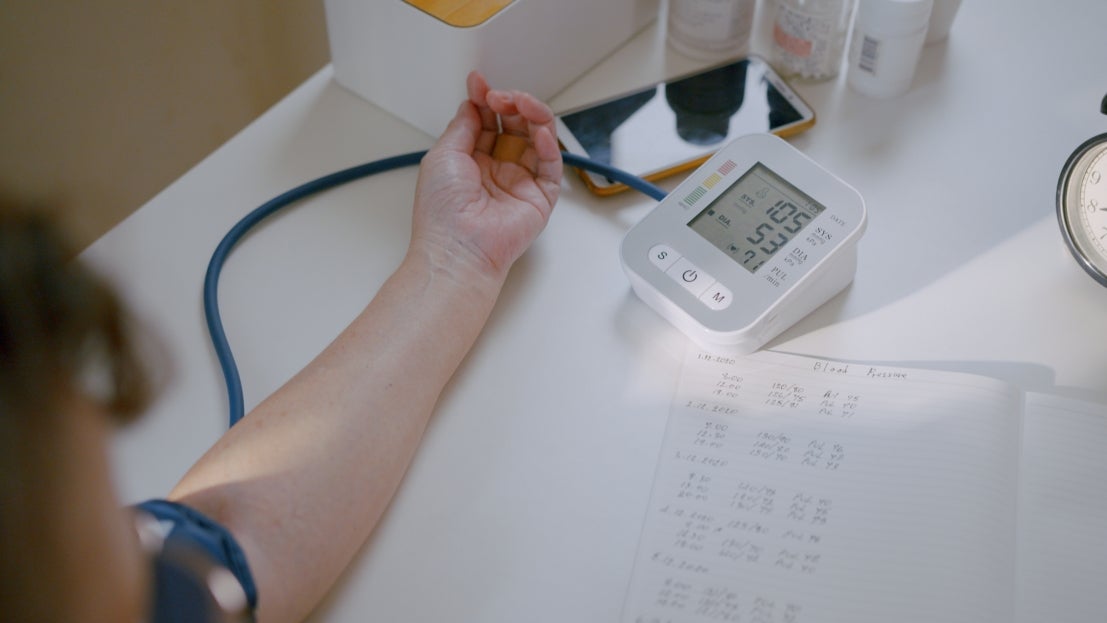
It is estimated that nearly 46% of Americans have high blood pressure, making them more likely to have a heart attack or stroke. Knowing how to take your blood pressure accurately and how to evaluate the reading can be lifesaving.
In order to take an accurate blood pressure reading, do not smoke, exercise, drink caffeinated beverages or alcohol at least 30 minutes prior. Five minutes before taking your blood pressure reading, sit in a comfortable chair and relax. When taking your blood pressure, make sure the cuff fits and wrap it against your skin right above the bend of the elbow. To ensure you receive an accurate reading, you should do the following while your blood pressure is being taken:
- Relax and don’t speak
- Rest the cuffed arm on a flat surface at the same level as your heart
- Sit upright with your back straight and supported
- Keep your legs uncrossed with your feet flat on the floor
Try to take your blood pressure around the same time each day, recording the date and results in a journal. You should take the journal with you to your doctor appointments.
Your blood pressure numbers will fall within one of the following five ranges, as recognized by the American Heart Association.
If your blood pressure is higher than 180 systolic and/or 120 diastolic and you are experiencing chest pain, shortness of breath, back pain, numbness/weakness, change in vision or difficulty speaking, do not wait to see if your pressure comes down on its own. Call 9-1-1 immediately.
Work with your primary care provider to determine and improve your blood pressure numbers. To schedule an appointment with a Lovelace Medical Group/New Mexico Heart Institute cardiac provider, call 505-841-1000.
- Normal range blood pressure numbers are less than 120 systolic (upper number) and less than 80 diastolic (lower number). If your results fall into this category, stick with heart-healthy habits like following a balanced diet and getting regular exercise.
- Elevated blood pressure is when readings consistently range from 120-129 systolic and less than 80 diastolic. People with elevated blood pressure are likely to develop high blood pressure unless steps are taken to control the condition.
- Hypertension stage 1 is when blood pressure consistently ranges from 130-139 systolic or 80-89 diastolic. At this stage of high blood pressure, doctors are likely to prescribe lifestyle changes. You may also need to take blood pressure medications based on your risk of heart-related health issues.
- Hypertension stage 2 is when blood pressure consistently ranges at 140 or higher systolic or 90 or higher diastolic. At this stage of high blood pressure, doctors are likely to prescribe a combination of blood pressure medications and lifestyle changes.
- Hypertensive crisis stage of high blood pressure requires immediate medical attention. If your blood pressure readings suddenly exceed 180 systolic and/or 120 diastolic, wait five minutes and then test your blood pressure again. If your readings are still unusually high, contact your doctor immediately.




